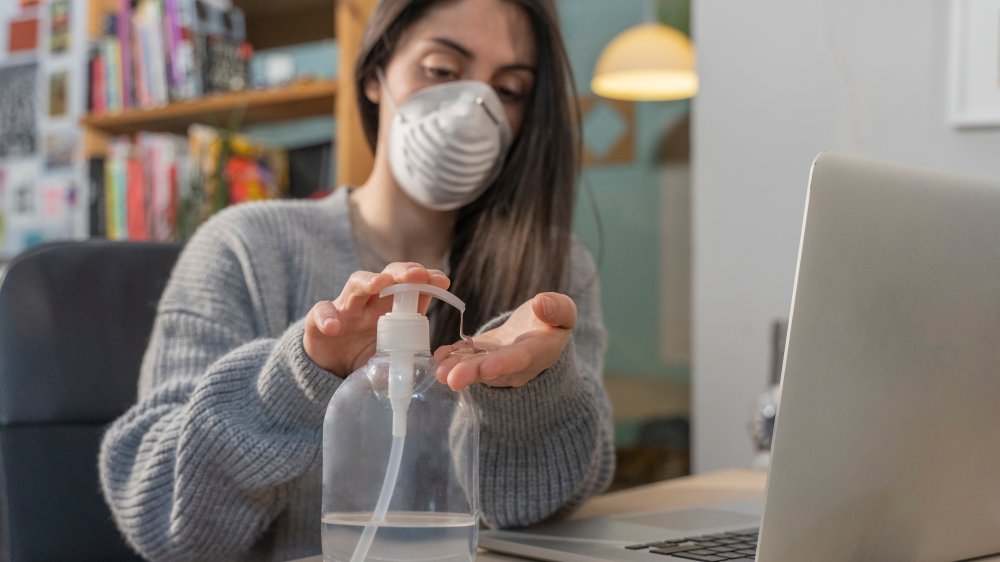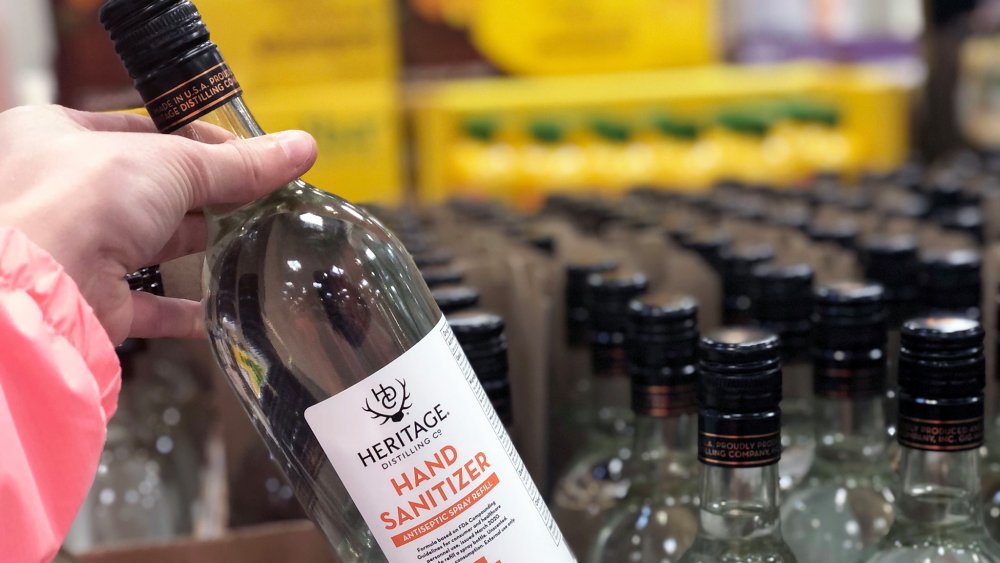Why The FDA Is Warning About Certain Hand Sanitizer Packages
Hand sanitizer may very well be the hottest product of 2020, with sales up 465 percent between March and July alone, as people have been slathering the stuff on their hands, multiple times per day, in frantic hopes of preventing coronavirus infection (per CNN). While indeed, these on-the-go cleansers have been touted for their ability to kill the virus on the spot, they are for topical use only, and over a dozen people this summer ended up in the emergency room because they ingested them by mistake (per US News & World Report).
To try to prevent the serious, life-threatening consequences of ingesting hand sanitizer — including seizures, kidney failure, and blindness — the U.S. Food and Drug Administration issued a warning to avoid certain types of the product that look like they are in food and beverage containers, and sometimes are scented with fruit flavors.
"I am increasingly concerned about hand sanitizer being packaged to appear to be consumable products, such as baby food or beverages," FDA Commissioner Stephen M. Hahn, M.D., said in a statement. "These products could confuse consumers into accidentally ingesting a potentially deadly product." Public health advocates agreed."There is some irony here that you're using hand sanitizer to try and be safer, and in some cases, it can actually be making you sick," U.S. Public Interest Research Group (PIRG) spokesperson Teresa Murray told Vox.
FDA criticizes hand sanitizer manufacturers for misleading packaging
With hand sanitizer sales spiking, some brands tried to differentiate their products from the competition by using clever packaging — not just the baby food containers Hahn mentioned, but also bottles similar in shape and size to beer and vodka bottles. "It's dangerous to add scents with food flavors to hand sanitizers which children could think smells like food, eat and get alcohol poisoning," Hahn said. "Manufacturers should be vigilant about packaging and marketing their hand sanitizers in food or drink packages in an effort to mitigate any potential inadvertent use by consumers. The FDA continues to monitor these products and we'll take appropriate actions as needed to protect the health of Americans."
The agency already has banned approximately 170 hand sanitizer products, many of which contain methanol, which is dangerous even just through skin absorption, and products with the active ingredients of ethanol or isopropyl alcohol, which also can be toxic because it can depress the central nervous system. The majority of the banned products were manufactured in Mexico, and have been sold in Walmart, Target, Costco, and BJ's Wholesale Club (per Good Housekeeping). You can find all banned hand sanitizers on the FDA's banned product list.


